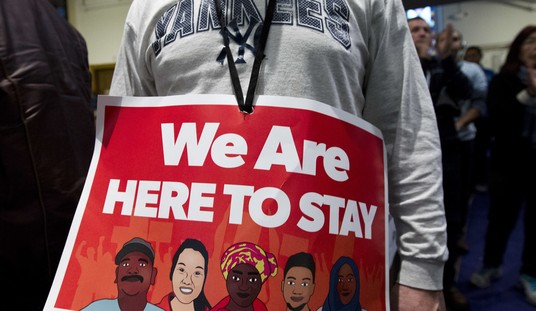Condoleezza Rice makes the obvious point to Fareed Zakaria in an interview aired a couple of hours ago on CNN’s Fareed Zakaria GPS. CNN pushed the transcript out with this highlight before the pre-recorded interview had finished airing, focusing on the issue of Pakistani complicity in Osama bin Laden’s living arrangement just yards away from their most important military academy. Rice doesn’t think that the Pakistani government is complicit, but strongly suggests that at least incompetence is an issue:
ZAKARIA: When you read about the story, is it plausible to you that Osama bin Laden could have been where he was without some complicity by some elements of the Pakistani military?
RICE: Well, let me say first I was surprised. I was surprised that he wasn’t in the tribal area someplace. That he was in a essentially a suburb of Islamabad. And we all know that Pakistan is a fractured society. I don’t for a minute believe that the government knew this, and was trying somehow to hide Osama bin Laden. But I do know that there’s some very hard questions to be asked and answered by Pakistan. And they really ought to be asking them themselves, because Pakistan itself is at risk from terrorism.
When Zakaria asked about the question of credit for the success of the OBL mission, Rice tried to position it as an American success that both Presidents in this war share. While the leads were developed under George Bush, Rice notes that Barack Obama faced tough decisions in making the call for a SEAL operation rather than a long-range missile attack on the compound:
ZAKARIA: We’re hearing some Republicans, people like Rush Limbaugh say Obama really doesn’t deserve much credit for this. You know – the operation was a routine operation. You’ve been in the White House, do you think that the President at key moments had to make difficult calls, whether to use a drone, whether to use special operations?
RICE: I’ve been in the White House, and I’ve seen a president make difficult decisions. And there were difficult decisions in this. What that – what President Obama has done, indeed it was a – it was a brave decision. Now it is absolutely the case that the United States of America has been fighting this war for at least ten years, and really a bit longer. And so this is a victory across presidencies. It’s a – it’s a victory for having learned more how to fight the counter terrorism fight. But there’s no doubt that as President Bush had to make some very, very hard calls that frankly helped to set this up, President Obama had to make some very difficult calls to bring it to conclusion.
Rice has this right. While we can rightly note with some amusement the lockstep use of the catchphrase “gutsy call” by Democrats attempting to make this all about Obama, it wasn’t an easy call to make. Had it gone wrong, Obama would have come under tremendous criticism for not taking the safer route of simply wiping the compound off the map with long-range airstrikes. The frustration comes from the fact that the current administration has acted rather gracelessly in failing to acknowledge the tough calls made by its preceding administration — including policies opposed by Senator and then Candidate Obama — that provided the basis for the success of this mission. That is especially true of the operation of Guantanamo Bay, where the lead was first developed.
That’s one of the reasons this graphic has been making the rounds lately:
I’d like to think that this success is big enough to share across two presidencies. It’s an American success, not one for just Bush or Obama, but both men played a large part in it. I think most Americans would agree, which makes the lack of graciousness from one administration to another obviously churlish.








Join the conversation as a VIP Member